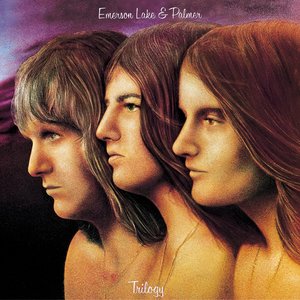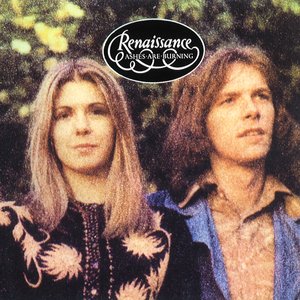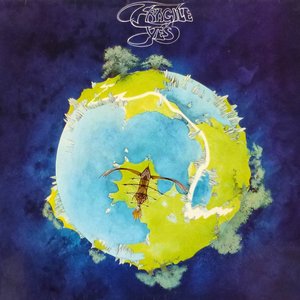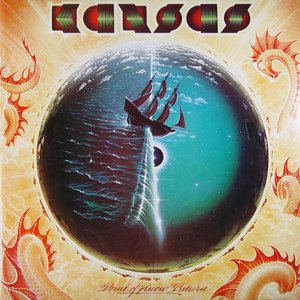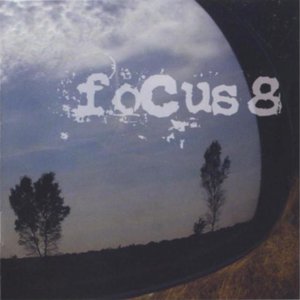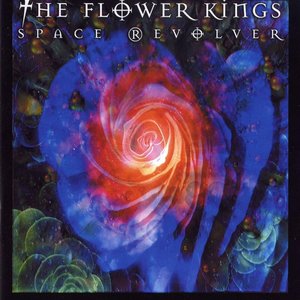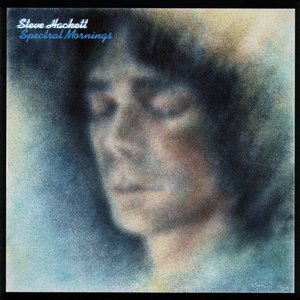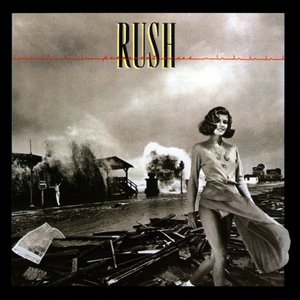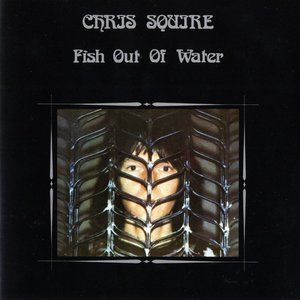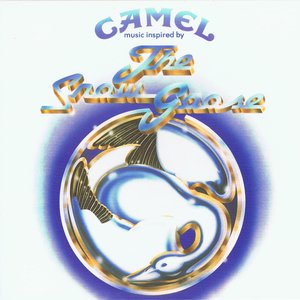Wiki
-
Release Date
27 March 1983
-
Length
9 tracks
90125 is the eleventh album by progressive rock group Yes, released in 1983. It was the first album since the breakup of Yes in 1981. It is also the first album to feature Trevor Rabin, and also features the return of vocalist Jon Anderson, who quit the band in 1979. It also marked the first time in twelve years that original keyboardist Tony Kaye had appeared with the group. The album is notable for marking a radical shift in style, with Yes largely trading in their trademark symphonic progressive rock sound for contemporary, synthesized 1980's pop.
The title of the album refers to its original catalogue number, not an American ZIP code (which is not in use).
Background
This new incarnation of Yes came about almost by accident. In 1980, well-known members Jon Anderson (vocalist) and Rick Wakeman (keyboardist) had left the band, replaced by Trevor Horn and Geoff Downes respectively. The new line-up was short-lived: after an album (Drama) and tour, they disbanded at the beginning of 1981. Bassist Chris Squire and drummer Alan White continued to work together, including on the abortive XYZ project and releasing a single as a duo in 1981.
Guitarist Trevor Rabin had left his native South Africa in the late 1970s and had released a series of solo albums. There had been various attempts to place Rabin in a band, including a proposed quartet with Rick Wakeman, John Wetton and Carl Palmer in 1980 and a proposed trio with Keith Emerson and Jack Bruce. Rabin tried out in Asia, alongside Wetton, Palmer and former Yes members Steve Howe and Geoff Downes. However, he had also been put in touch with Squire and White and this was to be his path instead.
Squire, White and Rabin began working together, initially considering some of the XYZ material. Trevor Horn was also associated with the nascent band from an early stage as the band's producer and, at one point, it was considered having him as the lead vocalist.
The band needed a keyboard player. Eddie Jobson was approached, but rejected the post. Instead, the trio were joined by none other than original Yes keyboardist Tony Kaye, who had been fired in 1971. They christened themselves "Cinema" and began recording what they thought was their debut album, comprising mainly of original music Rabin had originally earmarked for a solo album, and produced by Horn.
Everything changed in the spring of 1983 when Jon Anderson was played some of Cinema's recordings by Squire. When Anderson professed interest and became keen to join, it was realized that Yes, essentially, were reforming. Rabin was dubious at first, not wanting to be perceived as Steve Howe's replacement, but rather the lead guitarist for a new group. However, he quickly changed his mind once Anderson brought in some new lyrics and put his distinctive vocals on the existing music tracks. Thus, after a three-year gap, Yes was back.
However, due to a falling out with album producer Horn, Kaye left the sessions during the recording of 90125, with much of the keyboard work on the album being played by Rabin or Horn's hand-picked production team. When the band started preparing for a tour to support the album, Eddie Jobson was again asked to join, which he accepted. Jobson appeared in the video for the first single, "Owner of a Lonely Heart". In order to consolidate the legal position that this band was YES, Kaye was brought back. Jobson, unwilling to share the role of keyboard player, dropped out.
Release
Released that Autumn on Atlantic Records' subsidiary, Atco, 90125 launched Yes to the MTV age and to a whole new breed of fans. The music was catchy, contemporary and well-liked by reviewers and their new fans (many of whom had little clue of the band's previous incarnation). The lead single, "Owner of a Lonely Heart," became the band's first (and only) US #1 hit, driving 90125 to the Top 5 and helping it sell three million units, by far Yes's most successful album. The British sales were not as spectacular, but still solid, and successive hits, such as "Leave It" and "It Can Happen" ensured 90125 had a lengthy chart life. In addition, "Cinema" won the 1984 Grammy for the best rock instrumental, despite having no easily-discernible time signature.
The album's logo was created and designed by Garry Mouat at Assorted Images on an Apple IIe computer, which would be used on Yes's next studio album Big Generator as well. 90125 (Atco 790 125) reached #16 in the UK. It also reached #5 in the US during a chart stay of 53 weeks.
Recently in 2005, a Max Graham remix of "Owner of a Lonely Heart" reached #9 in the UK singles charts, bettering the original's #28 peak.
Contribution of Producer Trevor Horn
The album's great success was owed in no small part to the skills of its producer Trevor Horn, effectively the sixth member of the band during the making of the album; he is also credited with some of the songwriting. Horn was vocalist on Yes's previous album Drama (1980), but subsequently left to pursue full-time production work. Often lauded in the early 1980s for using the recording studio as an instrument in itself, he gave 90125 a clarity and sheen that made it very distinctive for the era. He skillfully exploited the then-new technology of digital sampling to achieve not only dazzling orchestral and vocal effects (witness the tracks Owner of a Lonely Heart, Leave It and City of Love), but also prominent usage of textural sounds which up until then were generally foreign to rock music. For example, to add interest, atmosphere or depth to the mix, Horn would mix in unexpected audio segments, such as the introduction to City of Love, which uses a sample from the opening of the 1924 orchestral piece Fountains of Rome by Italian composer Ottorino Respighi, faded in beneath a two-note bass guitar riff. (This in itself subtly reveals that the City of Love is Rome). And history repeated itself… a testament to Horn's pioneering achievement here is that snippets from Horn's own production (particularly complex vocal harmonies) were themselves later used as raw musical material by several high-profile artists, such as US jazzman Herbie Hancock and UK dance act Orbital.
Remix albums
Yes released an album on the Atlantic label (ATCO Records) in 1984 called "Twelve Inches on Tape" (released on album as well, title unavailable). This (now) rarity offered listeners 4 remixes of their chart-topping singles of "Leave It" and "Owner Of A Lonely Heart." The track listing from "Twelve inches on tape" (4 "mixes" in total):
"Leave It" (Remix) (Chris Squire/Trevor Rabin/Trevor Horn)
Produced by Trevor Horn. Engineered by Gary Langan)
"Owner of a Lonely Heart" (Red and Blue Mix) (Trevor Rabin/Jon Anderson/Chris Squire/Trevor Horn)
Produced by Trevor Horn. Engineered by Gary Langan)
"Leave It" (Hello, Goodbye Mix) (Chris Squire/Trevor Rabin/Trevor Horn)
Produced by Trevor Horn. Engineered by Steve Lipson)
Edited by Chris Squire and Stewart Bruce
"Owner of a Lonely Heart" (Album version) (Trevor Rabin/Jon Anderson/Chris Squire/Trevor Horn)
Produced by Trevor Horn. Engineered by Gary Langan)
Source: ATCO 7-90156-4-A Barcode #: 7567-90156-4
Side one
"Owner of a Lonely Heart" (Trevor Rabin/Jon Anderson/Chris Squire/Trevor Horn) – 4:29
"Hold On" (Trevor Rabin/Jon Anderson/Chris Squire) – 5:16
"It Can Happen" (Chris Squire/Jon Anderson/Trevor Rabin) – 5:29
"Changes" (Trevor Rabin/Jon Anderson/Alan White) – 6:20
Side two
"Cinema" (Chris Squire/Trevor Rabin/Alan White/Tony Kaye) – 2:08
"Leave It" (Chris Squire/Trevor Rabin/Trevor Horn) – 4:14
"Our Song" (Jon Anderson/Chris Squire/Trevor Rabin/Alan White/Tony Kaye) – 4:18
"City of Love" (Trevor Rabin/Jon Anderson) – 4:51
"Hearts" (Jon Anderson/Chris Squire/Trevor Rabin/Alan White/Tony Kaye) – 7:39
Bonus Tracks
90125 was remastered and reissued in 2004 with several bonus tracks. Bonus tracks include:
"Leave It (Single Remix)" (Chris Squire/Trevor Rabin/Trevor Horn) – 3:56
"Make It Easy" (Trevor Rabin) – 6:12
First issued on Yesyears.
"It Can Happen (Cinema Version)" (Chris Squire/Jon Anderson/Trevor Rabin) – 6:05
First issued on Yesyears.
"It's Over" (Previously Unissued)" (Trevor Rabin) – 5:41
"Owner of a Lonely Heart (Extended Remix) (Previously Unissued)" (Trevor Rabin/Jon Anderson/Chris Squire/Trevor Horn) – 7:05
"Leave It (A Capella Version)" (Chris Squire/Trevor Rabin/Trevor Horn) – 3:18
Personnel
Jon Anderson: vocals
Chris Squire: Bass guitars, vocals
Trevor Rabin: guitars, Keyboards, vocals
Tony Kaye: Keyboards
Alan White: Drums, percussion, vocals
Charts
Album - Billboard (North America)
Year Chart Position
1983 The Billboard 200 5
Singles - Billboard (North America)
Year Single Chart Position
1983 "Our Song" Mainstream Rock Tracks 32
1983 "Owner of a Lonely Heart" Hot Dance Music/Club Play 3
1983 "Owner of a Lonely Heart" Mainstream Rock Tracks 1
1983 "Owner of a Lonely Heart" The Billboard Hot 100 1
1984 "It Can Happen" The Billboard Hot 100 51
1984 "It Can Happen" Mainstream Rock Tracks 5
1984 "Leave It" The Billboard Hot 100 24
1984 "Leave It" Mainstream Rock Tracks 3
1984 "Changes" Mainstream Rock tracks 6
1984 "Owner of a Lonely Heart" Hot R&B/Hip-Hop Singles & Tracks 69
1984 "Hold On" Mainstream Rock Tracks 43
1985 "Hold On" Mainstream Rock Tracks 27
Album descriptions on Last.fm are editable by everyone. Feel free to contribute!
All user-contributed text on this page is available under the Creative Commons Attribution-ShareAlike License; additional terms may apply.
